Anna Ryabokon
Alpen-Adria Universität
OOASP: Connecting Object-oriented and Logic Programming
Aug 12, 2015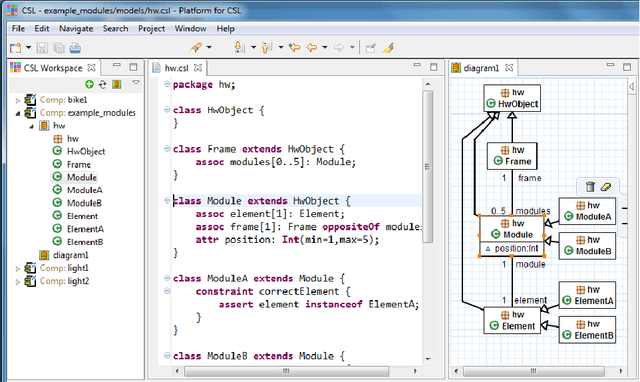

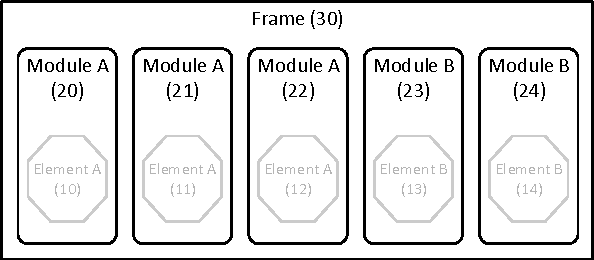
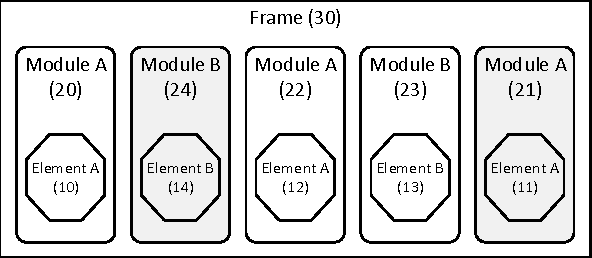
Abstract:Most of contemporary software systems are implemented using an object-oriented approach. Modeling phases -- during which software engineers analyze requirements to the future system using some modeling language -- are an important part of the development process, since modeling errors are often hard to recognize and correct. In this paper we present a framework which allows the integration of Answer Set Programming into the object-oriented software development process. OOASP supports reasoning about object-oriented software models and their instantiations. Preliminary results of the OOASP application in CSL Studio, which is a Siemens internal modeling environment for product configurators, show that it can be used as a lightweight approach to verify, create and transform instantiations of object models at runtime and to support the software development process during design and testing.
Study: Symmetry breaking for ASP
Dec 11, 2012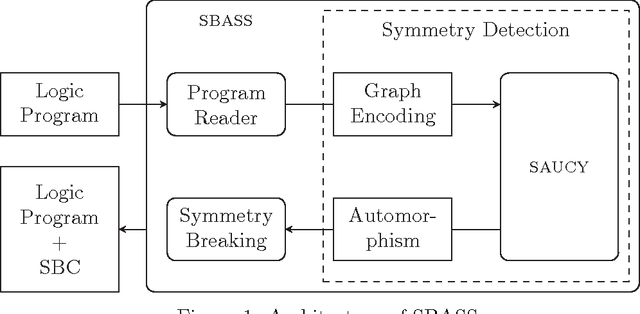
Abstract:In their nature configuration problems are combinatorial (optimization) problems. In order to find a configuration a solver has to instantiate a number of components of a some type and each of these components can be used in a relation defined for a type. Therefore, many solutions of a configuration problem have symmetric ones which can be obtained by replacing some component of a solution by another one of the same type. These symmetric solutions decrease performance of optimization algorithms because of two reasons: a) they satisfy all requirements and cannot be pruned out from the search space; and b) existence of symmetric optimal solutions does not allow to prove the optimum in a feasible time.
(Re)configuration based on model generation
Sep 01, 2011

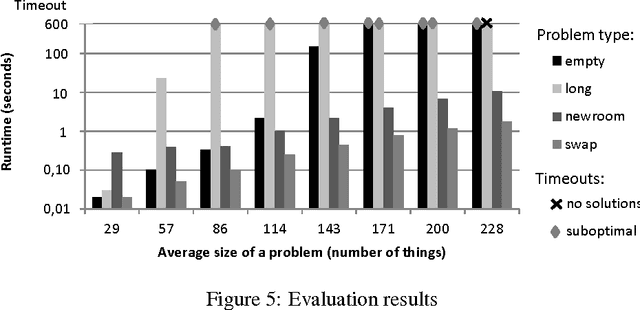
Abstract:Reconfiguration is an important activity for companies selling configurable products or services which have a long life time. However, identification of a set of required changes in a legacy configuration is a hard problem, since even small changes in the requirements might imply significant modifications. In this paper we show a solution based on answer set programming, which is a logic-based knowledge representation formalism well suited for a compact description of (re)configuration problems. Its applicability is demonstrated on simple abstractions of several real-world scenarios. The evaluation of our solution on a set of benchmark instances derived from commercial (re)configuration problems shows its practical applicability.
* In Proceedings LoCoCo 2011, arXiv:1108.6097
 Add to Chrome
Add to Chrome Add to Firefox
Add to Firefox Add to Edge
Add to Edge